Recording Arts & Music Production
Onsite Course at Mixdown Recording Studios
168 Vernon Ave, Yonkers, New York 10704
$8,999.00
Enroll NowThe Recording Arts & Music Production (R.A.M.P) Program is an accelerated course that is designed to turn graduates into expert engineers and producers. Students who enroll in this program undertake their tuition in our state of the art recording studio right from day one. The learning modules address each of the key components associated with modern recording engineering and music production.
Some of the other benefits offered to students of this program are:
- Hands on practical training
- Full access to our recording studios & equipment
- The opportunity to produce and mix their own records
- Real world experience engineering live recording sessions
- An apprenticeship within our parent production company
- Participation in our monthly songwriting workshop
Modules
Module 1: Sonics
Module Overview:
This introductory module provides students with a broad understanding of the various physical & mechanical attributes associated with sound energy. It also details the behavioral nature of sound within the constructs of differing acoustical environments, and outlines how these constructs influence sound perception. A brief overview of psychoacoustics is then presented so that students can understand how environmental acoustic energy is processed the human hearing mechanism.
SON 01: The Fundamentals of Sound
SON 02: Waveform Characteristics
SON 03: Amplitude
SON 04: Frequency
SON 05: Wavelengths
SON 06: Velocity
SON 07: Phase
SON 08: Harmonic Content
SON 09: Acoustics
SON 10: The Human Hearing Mechanism
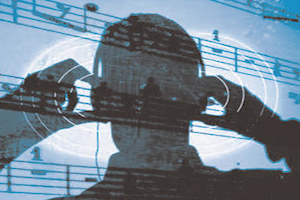
Module 2: Microphones
Module Overview:
This module focuses on establishing a firm understanding of the various types of microphones used in professional audio recording. Students are guided on microphone functionality and how to determine which models best suit specific recording applications. This includes an analysis of frequency response and directional pick up patterns. The module concludes with an overview of preamplifiers as well as mono and stereo recording techniques.
MIC 01: Introduction to Microphones
MIC 02: Microphone Functionality
MIC 03: Microphone Types
MIC 04: Directional Response
MIC 05: Frequency Response
MIC 06: Gain Staging
MIC 07: Interfacing with Preamplifiers
MIC 08: Gain Trimming & High Pass Filtering
MIC 09: Microphone Placement
MIC 10: Mono / Stereo Recording Techniques
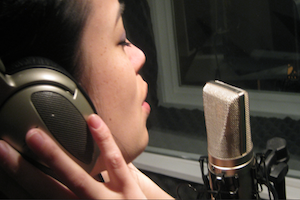
Module 3: Signal Routing
Module Overview:
This module teaches students the various cable types, interconnects and patching interfaces commonly used in modern recording studios. Students are shown which specific cable types are used for connecting microphones and instruments to commonly used recording hardware. They are also guided on aspects of signal flow to ensure that they understand how to correctly route signals from external hardware into digital audio workstations.
SFL 01: Balanced Cables
SFL 02: Unbalanced Cables
SFL 03: Jack Cables
SFL 04: MIDI Cables
SFL 05: Interconnections
SFL 06: Adapters
SFL 07: Patchbays
SFL 08: I/O Configurations
SFL 09: Signal Flow
SFL 10: Troubleshooting
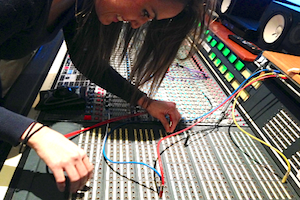
Module 4: Pro Tools 101
Module Overview:
This module introduces students to Pro Tools, which is the industry standard recording and music production software program. They are guided on how to use the basic features and functions of the software interface and shown how to store and recall recording session files. Upon completion of this module, students will have gained the required knowledge to begin recording and exporting material for their musical portfolios.
PTL 01: DAW Overview
PTL 02: Session File Management
PTL 03: Session Launching
PTL 04: File Importing
PTL 05: Track Layout
PTL 06: I/O Set Up
PTL 07: Professional Recording
PTL 08: Editing Tools
PTL 09: Interface Functionality
PTL 10: Bouncing & Exporting

Module 5: Digital Audio
Module Overview:
This module provides students with an understanding of how analog sound waves are captured during the recording stage and transformed into digital data for internal computer processing. Students are tutored on how this type of processing works with specific reference to sampling rates, bit depths and data storage. This is for the purpose of establishing a firm understanding of how analogous audio is captured, processed and reproduced by digital audio workstations.
DAU 01: Digital Basics
DAU 02: A/D Conversion
DAU 03: Sampling
DAU 04: Bit Depths
DAU 05: Data Storage
DAU 06: Quantization
DAU 07: Sound File Types
DAU 08: Clocking
DAU 09: Anti Aliasing
DAU 10: D/A Conversion
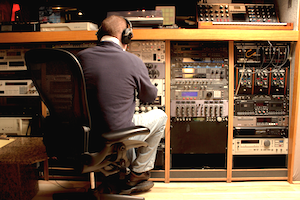
Module 6: MIDI Overview
Module Overview:
This module introduces students to MIDI and demonstrates how MIDI information is sent, received, read by MIDI devices and Digital Audio Workstations. Students are then shown how to interface various external controllers and configure port & device settings. On going supervision is provided throughout to ensure that students develop proficiency at using the technology in a creative capacity.
MDO 01: Introduction to MIDI
MDO 02: MIDI Controllers
MDO 03: MIDI Configuration
MDO 04: Device Connectivity
MDO 05: Sample Triggering
MDO 06: Data Messaging
MDO 07: Arranging
MDO 08: Sequencing
MDO 09: MIDI File Storage
MDO 10: Converting MIDI to Audio
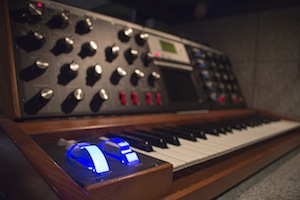
Module 7: Foundations of Music Theory
Module Overview:
This module is designed to give students a basic understanding of the main elements associated with music theory. From tempo and rhythm; to scales, keys and chord structures; students are armed with the knowledge needed to begin composing basic musical phrases which incorporate chordal and melodic progressions.
FMT 01: Time Signatures
FMT 02: Tempo
FMT 03: Key Signatures
FMT 04: Step Measurement
FMT 05: Major Scales
FMT 06: Minor Scales
FMT 07: Chord Structures
FMT 08: Chord Progression
FMT 09: Transposition
FMT 10: Form Structures
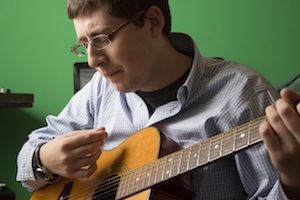
Module 8: Plug-Ins
Module Overview:
This module addresses all of the commonly used effect units used in pro audio and music production. Each unit type is presented individually in order to give students a firm understanding of the different methods of sound signal alteration. Individual parameter controls are also explained in detail so that students understand how to use effect processing appropriately across a range of applications.
SPR 01: Equalization
SPR 02: Compression
SPR 03: Reverb
SPR 04: Delay
SPR 05: Chorus
SPR 06: Flanging
SPR 07: Phasing
SPR 08: Modulation
SPR 09: Tremelo
SPR 10: Distortion
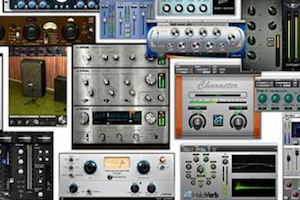
Module 9: Introduction to Beat Composition
Module Overview:
The beat composition module invites students to apply all of their newfound knowledge in a creative capacity. The module begins with a workshop which focuses on the production techniques used by many highly acclaimed producers and artists. In the following classes, students are encouraged to begin composing and producing their own original musical material by utilizing the skills learned in modules 4 through 8.
IBC 01: Drum Design
IBC 02: Bass
IBC 03: Chords
IBC 04: Melody
IBC 05: Sampling
IBC 06: Sequencing
IBC 07: Layering
IBC 08: Creative Effects
IBC 09: Production Workshop
IBC 10: Analysis
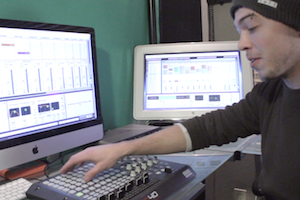
Module 10: Mixing
Module Overview:
This module walks students through the stage of audio post-production. They are guided on the various practices and procedures associated with mixing and mastering digital audio. Emphasis is placed on how to identify the most appropriate means for maximizing the individual sonic attributes and characteristics of recorded and sequenced audio.
MIX 01: Volume Balancing
MIX 02: Panning Techniques
MIX 03: Gain Structuring
MIX 04: Sequencing
MIX 05: Buses
MIX 06: Returning
MIX 07: Effects Sends
MIX 08: Grouping
MIX 09: Automation
MIX 10: Exporting
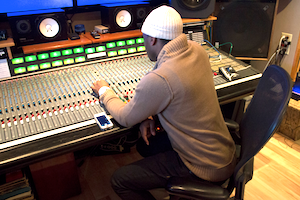
Module 11: Intern Apprenticeship
Module Overview:
Upon completion of this course students are offered the unique opportunity to work as an intern from inside our world class studio. They will see what it’s like to gain invaluable experience in a professional environment, working with various artists and engineers. Interns will have the training they need to peruse their career with a wide range of experience such as insight into the daily workings of the studio, meetings, booking, and managerial skills. Our apprenticeship provides interns with real world practice while being surrounded by industry professionals.
INT 01: Studio Internship

